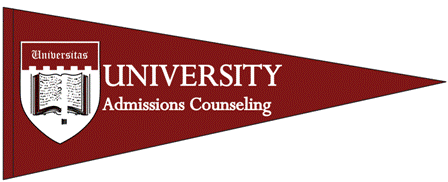After spending grueling hours last fall researching colleges, writing essays, seeking letter of recommendations, and filling out applications, most high school seniors would agree that right now all they can think about is whether or not their colleges have accepted them. This is an emotional time for students. There's the thrill of being accepted and the pain of being rejected.
Earlier this week, UCSD erroneously sent out an email to 28,000 students welcoming them to the campus for Admit Day (new student orientation) - after already being rejected. This email was intended to be sent to about 18,000 students who were already accepted, of the more than 46,000 applicants.
As painful this was for many students, UCSD is not the first or only campus to have made this type of administrative error. Cornell University, the University of North Carolina at Chapel Hill and Northwestern University's prestigious Kellogg School of Management have made similar admission notification mistakes in the last five years, but UCSD's mistake was by far the biggest.
To read more about UCSD's blunder, click here. If you want to continue reading about this topic, view these related articles.
Thursday, April 2, 2009
How the economy is affecting college choices: New survey findings reported
Jack Maguire of Maguire Associates is conducting a national survey on student and parent attitudes on the economy and how those attitudes are affecting colleges choices. The survey includes responses from 30,000 students and 6,000 parents.
Click here to view the interview and learn about his findings.
Click here to view the interview and learn about his findings.
Thursday, March 26, 2009
You've been accepted! Now what?
As April quickly approaches, high school seniors will have a list of which colleges they've been admitted and now must decide where to commit. This article for students and parents provides advice on 10 Things to Do once you've been admitted.
Making standardized tests optional?
A new research study has concluded that if the SAT or ACT tests were optional, there would be an increase in racial and socioeconomic diversity at competitive colleges. The findings appear to confirm what SAT critics have said for years: that reliance on the SAT in college admissions favors applicants who are white and/or wealthier than other applicants.
To date, there is only one college, Sarah Lawrence College, who has dropped the standardized test requirement all together. Their admissions website states, " Sarah Lawrence College feels that standardized testing is not effective in evaluating a student's ability to succeed in a writing-based curriculum such as ours."
Click on the link to read the article from Inside Higher Ed.
Want to learn more about test optional colleges? Visit is fairtest.org. They provide a list with over 800 test optional colleges.
To date, there is only one college, Sarah Lawrence College, who has dropped the standardized test requirement all together. Their admissions website states, " Sarah Lawrence College feels that standardized testing is not effective in evaluating a student's ability to succeed in a writing-based curriculum such as ours."
Click on the link to read the article from Inside Higher Ed.
Want to learn more about test optional colleges? Visit is fairtest.org. They provide a list with over 800 test optional colleges.
Thursday, March 12, 2009
Understanding Finanical Aid
What does all this mean?
FinAid.org has compiled a glossary of terms to help you understand their terms and acronyms.
Not sure how to plan for college financially?
The Department of Education and Federal Student Aid created the FAFSA4caster which provides tools for families get an estimate of your eligibility for federal student aid. This is a handy tool for sophomores and juniors, in particular.
What does financial aid look like for today's entering freshman?
Forbes.com posted an article recently that explains how colleges are making changes to accomodate students and families.
FinAid.org has compiled a glossary of terms to help you understand their terms and acronyms.
Not sure how to plan for college financially?
The Department of Education and Federal Student Aid created the FAFSA4caster which provides tools for families get an estimate of your eligibility for federal student aid. This is a handy tool for sophomores and juniors, in particular.
What does financial aid look like for today's entering freshman?
Forbes.com posted an article recently that explains how colleges are making changes to accomodate students and families.
Tuesday, March 10, 2009
Unpredictable Year for College Admissions
In years past, statistical models aided college admissions departments in determining the number of students that would accept their offers. But this year, with the economy in disarray, colleges can't rely on their usual models for admitting students. They are trying to figure out how many students to accept, and how many students will accept them.
More students are opting to stay in-state and attend public colleges because typically they are more affordable. In response, public universities are seeing more applicants than usual and with state budget cuts, are capping enrollment (in California in particular). Private colleges are reporting less applicants but are offering more generous financial aid to help ease the stress of parents who are reluctant to commit four years of expensive private school tuition.
Click here to read the full article from the New York Times.
More students are opting to stay in-state and attend public colleges because typically they are more affordable. In response, public universities are seeing more applicants than usual and with state budget cuts, are capping enrollment (in California in particular). Private colleges are reporting less applicants but are offering more generous financial aid to help ease the stress of parents who are reluctant to commit four years of expensive private school tuition.
Click here to read the full article from the New York Times.
Sunday, March 1, 2009
Education in America
On February 24, 2009, during President Obama's Address to Joint Sessions of Congress, he discussed the importance of post-secondary education in America.
"It is our responsibility as lawmakers and educators to make this system work. But it is the responsibility of every citizen to participate in it. And so tonight, I ask every American to commit to at least one year or more of higher education or career training. This can be community college or a four-year school; vocational training or an apprenticeship. But whatever the training may be, every American will need to get more than a high school diploma. And dropping out of high school is no longer an option. It’s not just quitting on yourself, it’s quitting on your country – and this country needs and values the talents of every American. That is why we will provide the support necessary for you to complete college and meet a new goal: by 2020, America will once again have the highest proportion of college graduates in the world."
It's been confirmed repeatedly that college graduates can expect significantly higher wages over their lifetime than those with a high school diploma. But what is all too often left unaddressed is the non-monetary value of an education. Inside Higher Ed published an article in 2007 on the Non-Monetary Value of a College Degree that enlightens readers on just how significant a college degree can be. People who advance their lives through education tend to have a more positive outlook on themselves and their role in society. They become more civic minded, volunteer in their community, and in general lead healthier lives.
It is our mission at University Admissions Counseling to help people develop personalized and manageable paths to academic and vocational success. Whether you are earning a certificate program, taking a course for personal enrichment or professional development, obtaining a 4-year degree, or building your career, University Admissions Counseling can help.
Invest in yourself and you invest in a better tomorrow.
"It is our responsibility as lawmakers and educators to make this system work. But it is the responsibility of every citizen to participate in it. And so tonight, I ask every American to commit to at least one year or more of higher education or career training. This can be community college or a four-year school; vocational training or an apprenticeship. But whatever the training may be, every American will need to get more than a high school diploma. And dropping out of high school is no longer an option. It’s not just quitting on yourself, it’s quitting on your country – and this country needs and values the talents of every American. That is why we will provide the support necessary for you to complete college and meet a new goal: by 2020, America will once again have the highest proportion of college graduates in the world."
It's been confirmed repeatedly that college graduates can expect significantly higher wages over their lifetime than those with a high school diploma. But what is all too often left unaddressed is the non-monetary value of an education. Inside Higher Ed published an article in 2007 on the Non-Monetary Value of a College Degree that enlightens readers on just how significant a college degree can be. People who advance their lives through education tend to have a more positive outlook on themselves and their role in society. They become more civic minded, volunteer in their community, and in general lead healthier lives.
It is our mission at University Admissions Counseling to help people develop personalized and manageable paths to academic and vocational success. Whether you are earning a certificate program, taking a course for personal enrichment or professional development, obtaining a 4-year degree, or building your career, University Admissions Counseling can help.
Invest in yourself and you invest in a better tomorrow.
Subscribe to:
Posts (Atom)

